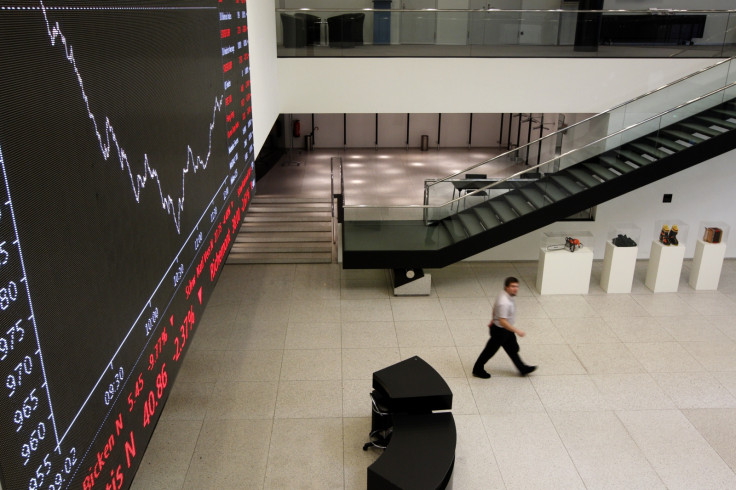Market turmoil: FTSE 100 posts heaviest loss in first week of the year since 2000

The FTSE 100 posted its biggest weekly fall for the first five trading days of the year since 2000 after UK stocks relinquished early gains on 8 January. The blue-chip FTSE 100 closed the final session of the week down 0.70% to 5,912.44, extending the hefty losses it suffered throughout the week as trading on the Shanghai Composite Index was halted twice in four days, sparking a global sell-off.
Early in the afternoon session, a better-than-expected US jobs report provided a much-needed boost for the FTSE but the index quickly lost ground after analysts expressed concerns over the slight decline in hourly wages.
"The US open ending up not being the white knight the European markets were looking for," said Spreadex financial analyst Connor Campbell. "Perhaps the superb non-farm figure was tempered by falling wage growth and an unchanged unemployment rate. Or perhaps investors aren't willing to take too much risk into the weekend, especially with the prospect of another awful start to Monday on the cards."
In company news, Sports Direct was the standout loser of the day, after the sports apparel retailer issued a profit warning, blaming unusually warm weather this winter and difficult trading conditions on the high street.
"With markets in such a delicate spot, it was always going to be tough to get away with a damage-limitation exercise," said Chris Beauchamp, senior market analyst at IG. "The mention of a continuation of such difficult conditions for the next four months has put the cat amongst the magpies."
The group led the FTSE 100 fallers after plunging, while commodity-related stocks, such as Royal Dutch Shell, Antofagasta and Anglo American, were also in the red as oil prices continued to decline.
On the FTSE 250, oil and mining stocks were also under the cosh, with Evraz, Petrofac, Vedanta and Tullow Oil − which had its targeted price lowered from 310p to 295p by analysts at JP Morgan − all among the five top fallers.
Meanwhile, Tesco was the top riser on the UK's main benchmark after analysts at Barclays upgraded their rating on the stock from "equal weight" to "overweight" indicating the stock valuation was attractive for the first time in a while.
"Tesco now offers a reasonably visible double-digit free cash flow yield and is trading in line with Sainsbury's on an EV/sales basis for the first time in many years," the bank said.
EasyJet was also on the front foot, rebounding from a decline in the previous session as Moody's assigned an inaugural "Baa1 long-term issuer" rating to the budget airline with a "stable" outlook, while BAE Systems extended gains after analysts at RBC Capital Markets upgraded their rating from "outperform" to "top pick" and lifted the target price from 570p to 630p.
On the FTSE 250, Vectura Group led the risers, after revealing it had taken a significant step forward in the development of two of its products after disclosing its US development partner and completing a clinical trial in the US.
FTSE 100 − Risers
Tesco 146.90p +5.53%
BAE Systems 519.50p +2.77%
easyJet 1,713.00p +2.64%
TUI AG Reg Shs (DI) 1,249.00p +2.55%
Rolls-Royce Holdings 559.50p +2.47%
FTSE 100 − Fallers
Sports Direct International 433.30p -15.37%
Royal Dutch Shell 'B' 1,375.50p -5.92%
Royal Dutch Shell 'A' 1,375.00p -5.47%
Anglo American 229.20p -4.76%
BHP Billiton 652.10p -3.21%
FTSE 250 − Risers
Vectura Group 188.50p 5.84%
Elementis 216.50p 4.44%
Marston's 164.50p 3.59%
Rank Group 259.50p 3.58%
Indivior 182.90p 3.28%
FTSE 250 − Fallers
Tullow Oil 138.90p -7.40%
Jimmy Choo 117.10p -7.28%
Evraz 63.00p -6.80%
Petrofac Ltd 669.50p -5.66%
Vedanta Resources 226.50p -5.47%
© Copyright IBTimes 2025. All rights reserved.



















